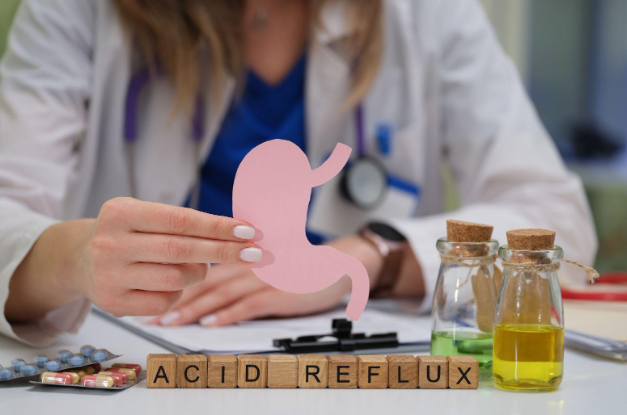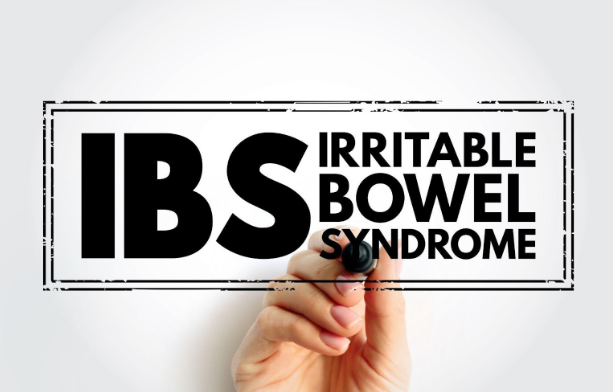Gastrointestinal Problems Most Common in Children under 18

The well-being of children depends on various factors, with gastrointestinal health playing a major role. A well-functioning digestive system is vital for nutrient absorption, growth, and overall physical well-being in young individuals. Gastrointestinal problems range from minor discomforts to chronic conditions and can significantly impact their quality of life and development.
Statistics reveal that a
substantial number of children experience gastrointestinal problems, prompting a need for awareness and understanding. These issues encompass a range of disorders, from acid reflux and constipation to more complex conditions like inflammatory bowel disease.
As we delve into the details of the gastrointestinal problems commonly encountered among children under 18, we hope to shed light on their underlying causes, identify telltale symptoms, and present available treatment options. By doing so, we aim to empower parents and caregivers with valuable insights to navigate these challenges and ensure the optimal gastrointestinal health of our young generation.
What Kind of Gastric Issues Do Children Face?
Pediatric gastrointestinal problems encompass a spectrum of disorders affecting the digestive systems of children, each with its own set of challenges and implications. The significance of these issues cannot be understated, as a healthy gastrointestinal system is essential for the overall growth and well-being of children.
A notable factor to consider is that a child's digestive system is not fully mature, making it inherently more vulnerable to various problems. The interplay of digestive processes, from enzyme secretion to nutrient absorption, is still in the developmental phase. This makes children more susceptible to disruptions, whether due to dietary choices, infections, or underlying medical conditions.
Understanding the unique nature of pediatric gastrointestinal problems is crucial for early detection and effective management. As we delve deeper into the common gastrointestinal concerns faced by children under 18, it's important to recognize the delicate balance of their developing digestive systems and the nuanced approach required to address these issues comprehensively.
Let’s take a closer look at the different GI tract-related issues that children commonly face.
Gastroesophageal Reflux Disease (GERD)
Gastroesophageal Reflux Disease (GERD) isn't just a problem for adults—it's also quite a common concern in kids. GERD happens when the acid and other liquids in the stomach go back up into the throat, causing discomfort. Even though we often associate it with grown-ups, it is quite prevalent in kids, too.
GERD in kids has a few reasons, but one main cause is a weak valve that separates the stomach and throat. In kids, this valve isn't very strong yet, so stomach juices can come back up pretty easily. Kids with GERD might feel heartburn, which is like a burning feeling in the chest. They could also spit up food and find it hard to swallow.
Taking care of kids with GERD means doing a few things. Changing what they eat is important; avoiding spicy and sour foods can help. Doctors may also prescribe medication to control stomach acids. Kids may also be advised to sit up straight after eating.
Constipation
Constipation occurs when your bowel movements become less frequent, and your stools become difficult to pass. What causes constipation in kids? Well, a few things.
Not eating enough fiber-rich foods like fruits and vegetables can slow things down in the tummy. Not drinking enough water can make it hard for things to move smoothly. Plus, not being active can also lead to constipation. Kids with constipation might not poop as often as they should, and when they do, it can hurt. Their tummies might ache, and they might feel uncomfortable.
But there's good news! Parents can help prevent and manage constipation in their kids. Making sure they eat foods with lots of fiber, like whole grains, can help things move along. Drinking enough water is important, too, and encouraging kids to play and be active can keep their tummies happy.
Irritable Bowel Syndrome (IBS)
Irritable Bowel Syndrome (IBS) is an issue where things don't work right in the belly. Kids might feel it when they eat certain foods or feel stressed. IBS can cause tummy pain and make the belly feel puffed up. It can also lead to either an increased or decreased frequency of bowel movements. Kids with IBS might have stomach pain and bloating, and they might get diarrhea (lots of bathroom trips) or constipation (trouble pooping).
But here's the good part—we can help kids with IBS feel better. Changing their food can help a lot. Avoiding foods that cause trouble is a good idea. And helping kids relax with things like deep breathing or yoga can make their stomachs calmer. If needed, medication may be prescribed for better relief.
Food Allergies and Intolerances
Although allergies and intolerances might sound similar, they're a bit different. Allergies make the body react strongly to some foods, while intolerances just give you a stomach upset. Lots of kids have intolerances and allergies to various substances. Food allergies occur when the body’s immune system has a reaction when certain foods are consumed. Common troublemakers are milk, eggs, nuts, and gluten.
When kids ingest something they’re allergic to, they might get hives, feel sick, throw up, or have tummy problems. Intolerances might make the tummy hurt, make kids gassy, or give them diarrhea. The trick is knowing what's causing the problem. Doctors can help figure that out. They might suggest avoiding certain foods for a while to see if things get better. It's essential to get medical help for proper guidance.
Another common substance that children may be intolerant of is lactose. Lactose intolerance impacts their ability to digest lactose, a sugar in milk and dairy products. The condition arises due to insufficient production of lactase, an enzyme needed to break down lactose. Symptoms of lactose intolerance include bloating, gas, stomach cramps, and diarrhea after consuming lactose-containing foods. Detecting lactose intolerance involves observing the onset of symptoms after consuming dairy.
Managing lactose intolerance in kids involves avoiding dairy or opting for lactose-free alternatives. This ensures comfort and prevents discomfort. Awareness about lactose intolerance empowers parents to make informed dietary choices for their children's digestive well-being.
Celiac Disease
Celiac disease is an autoimmune condition with distinct implications for children. It is characterized by the immune system's response to gluten, a protein found in wheat, barley, and rye. This response leads to damage to the lining of the small intestine, hampering nutrient absorption.
When gluten enters the digestive system of individuals with celiac disease, the immune system goes into overdrive, targeting both the gluten and the intestinal lining. This chronic inflammation and damage can manifest as a range of symptoms, including digestive discomfort, fatigue, and failure to thrive in children.
The presentation of celiac disease in children can be diverse, and symptoms often extend beyond just gastrointestinal issues and can include irritability, delayed growth, and even skin issues. Early diagnosis holds significant importance, as it prevents complications and ensures the proper development of children. A definitive diagnosis involves blood tests and a biopsy of the small intestine.
Upon diagnosis, a strict gluten-free diet becomes imperative to managing celiac disease. Eliminating gluten from the diet allows the small intestine to heal, mitigating symptoms and potential long-term complications. Left untreated, celiac disease can lead to malnutrition, osteoporosis, and other autoimmune disorders.
Inflammatory Bowel Disease (IBD)
Inflammatory Bowel Disease (IBD) is a complex and chronic ailment that significantly impacts the gastrointestinal tract of children. IBD comprises two main types: Crohn's disease and ulcerative colitis, each with distinct characteristics and patterns of inflammation.
Crohn's disease can affect any part of the digestive system, causing inflammation that extends through the entire thickness of the intestinal wall. Ulcerative colitis, on the other hand, primarily targets the colon and rectum, causing inflammation only in the innermost lining of these areas.
On the other hand, children with IBD often confront a range of debilitating symptoms. Abdominal pain, accompanied by diarrhea, is a common hallmark. Weight loss and growth issues may emerge due to the nutritional challenges posed by the condition.
The treatment for pediatric IBD is multifaceted, reflecting the intricate nature of the disease. Medications, including anti-inflammatory drugs and immunosuppressants, play a key role in managing inflammation and providing symptom relief. Nutritional support is often vital, either through dietary changes or supplementary feeding. In severe cases, surgery might be necessary to remove damaged portions of the intestine.
In the complex realm of pediatric gastrointestinal health, comprehending and managing prevalent problems is vital for our children's wellness. Whether it's GERD, food allergies, constipation, or IBD, grasping the indications, causes, and remedies is paramount to their health. It's imperative to keep in mind that prompt action, balanced nutrition, and expert medical support play a pivotal role in guaranteeing the digestive well-being and overall ease of our youngsters.
Ready to ensure your child's digestive health? Reach out to the expert gastroenterologists at
Northlake Gastroenterology Associates and gain the insights and guidance you need for your child's well-being. Let's work together to create a healthier, happier future for your little ones. Contact us today to
request an appointment!
More Blogs












